
The Brittany region of France is renowned for its picturesque countryside, stunning coastline, and rich history. Its unique blend of Celtic and Gallo-Roman cultures has been attracting visitors for centuries.
These vintage photos from Claude Lacourarie’s collection provide a fascinating glimpse into the everyday life of the people of Brittany’s countryside during the early 1900s.
The vintage photos depict a world that is vastly different from our own, but at the same time, they reveal the timeless qualities of the region.
One photo shows a group of villagers gathered around a well, their faces etched with the weariness of a hard day’s work.
Another captures a group of children playing in a village square, their laughter and joy bringing life to the old stones around them. In another photo, we see people gathered outdoors and making crepes.
These old photos show the exceptional qualities of the people of Brittany – their resourcefulness, resilience, and sense of community. They provide a unique window into a world that is long gone.

Breton peasant women. Traditional production of butter in a hand churn.
From the 15th to the 18th century, Brittany reached an economic golden age. The region was located on the seaways near Spain, England and the Netherlands and it greatly benefited from the creation of a French colonial empire.
Local seaports like Brest and Saint-Brieuc quickly expanded, and Lorient, first spelled “L’Orient”, was founded in the 17th century.
Saint-Malo then was known for its corsairs, Brest was a major base for the French Navy and Nantes flourished with the Atlantic slave trade. On its side, the inland provided hemp ropes and canvas and linen sheets.
However, Colbertism, which encouraged the creation of many factories, did not favour the Breton industry because most of the royal factories were opened in other provinces.
Moreover, several conflicts between France and England led the latter to restrain its trade, and the Breton economy went into recession during the 18th century.
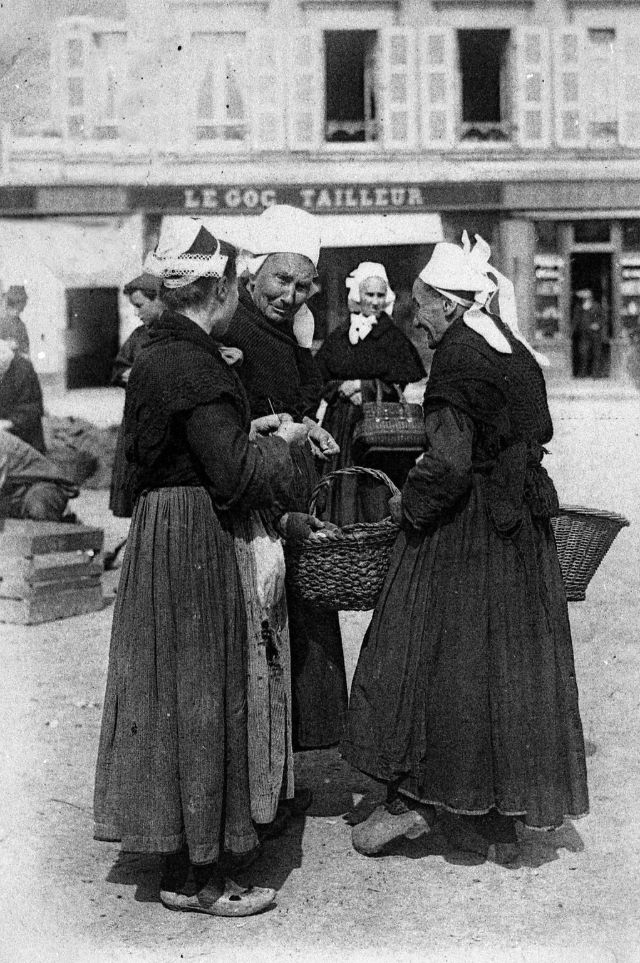
Concarneau. Country costume.
During the 19th century, Brittany remained in economic recession, and many Bretons emigrated to other French regions, particularly to Paris.
This trend remained strong until the beginning of the 20th century. Nonetheless, the region was also modernising, with new roads and railways being built, and some places being industrialised.
Nantes specialised in shipbuilding and food processing (sugar, exotic fruits and vegetables, fish…), Fougères in glass and shoe production, and metallurgy was practised in small towns such as Châteaubriant and Lochrist, known for its labour movements.
The region remained deeply Catholic, and during the Second Empire, the conservative values were strongly reasserted.
When the Republic was re-established in 1871, there were rumours that Breton troops were mistrusted and mistreated at Camp Conlie during the Franco-Prussian War because of fears that they were a threat to the Republic.
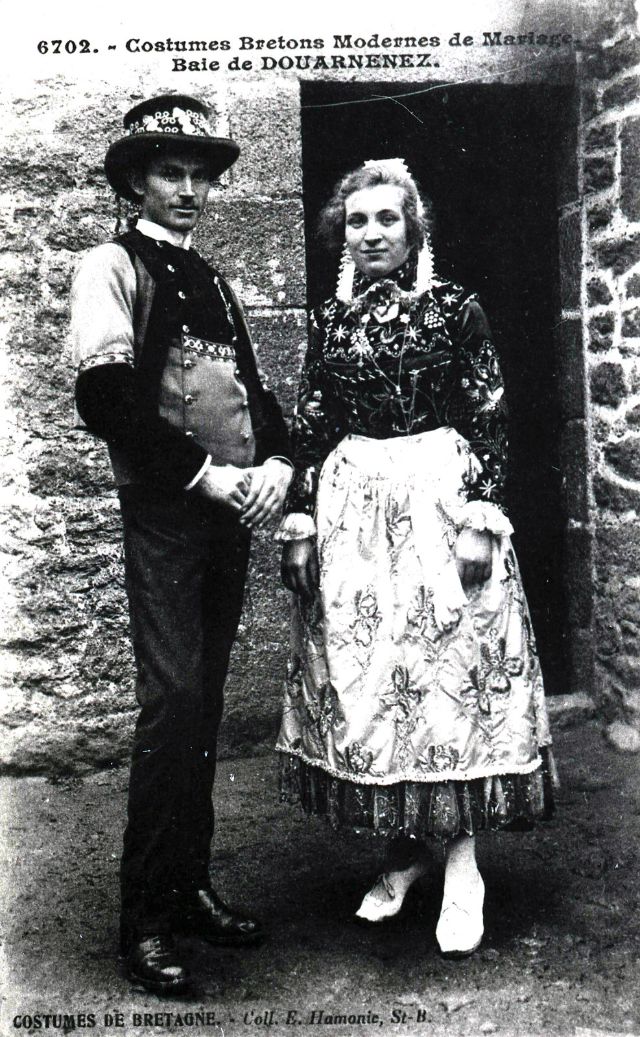
Douarnenez wedding.
During the 19th century, the Breton language started to decline precipitously, mainly because of the Francization policy conducted under the Third Republic.
On one hand, children were not allowed to speak Breton at school, and were punished by teachers if they did. Famously, signs in schools read: “It is forbidden to speak Breton and to spit on the floor”.
At the same time, the Celtic Revival led to the foundation of the Breton Regionalist Union (URB) and later to independence movements linked to Irish, Welsh, and Scottish and Cornish independence parties in the UK, and to pan-Celticism.
However, the audience of these movements remained very low and their ideas did not reach a large public until the 20th century.
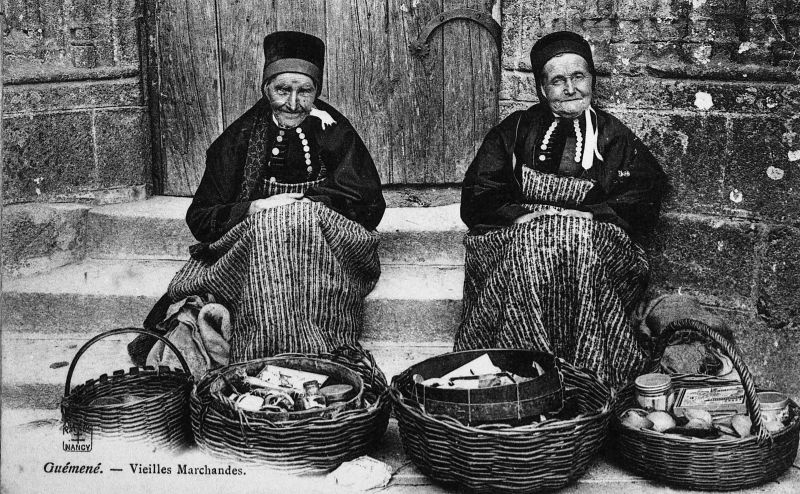
Guémené-sur-Scorff. Old merchants.
Brittany lost 240,000 men during the First World War.[35] The Second World War was also catastrophic for the region.
It was invaded by Nazi Germany in 1940 and freed after Operation Cobra in August 1944. However, the areas around Saint-Nazaire and Lorient only surrendered on 10 and 11 May 1945, several days after the German capitulation.
The two port towns had been virtually destroyed by Allied air raids, like Brest and Saint-Malo, and other towns, such as Nantes and Rennes, had also suffered.
In 1956, Brittany was legally reconstituted as the Region of Brittany, although the region excluded the ducal capital of Nantes and the surrounding area.
Nevertheless, Brittany retained its cultural distinctiveness, and a new cultural revival emerged during the 1960s and 1970s.
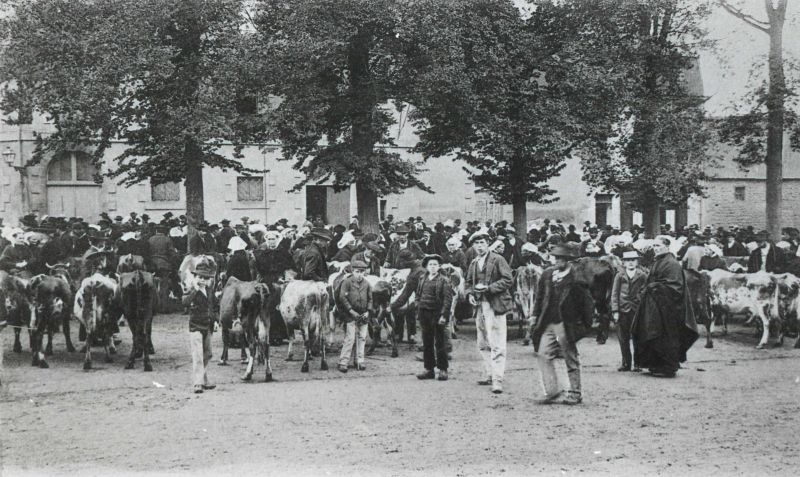
Guingamp market.
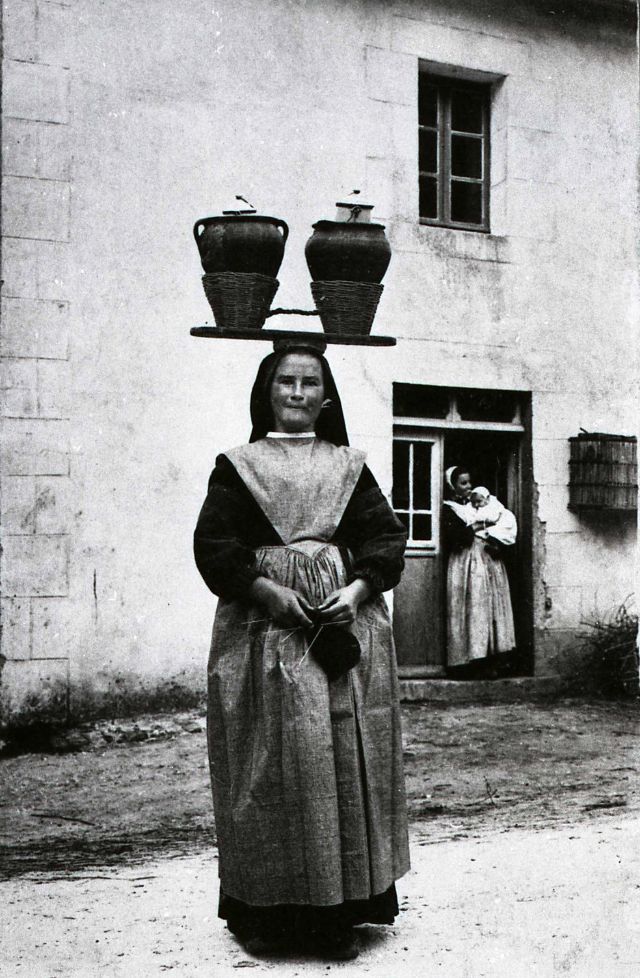
Hennebont. Milk seller.
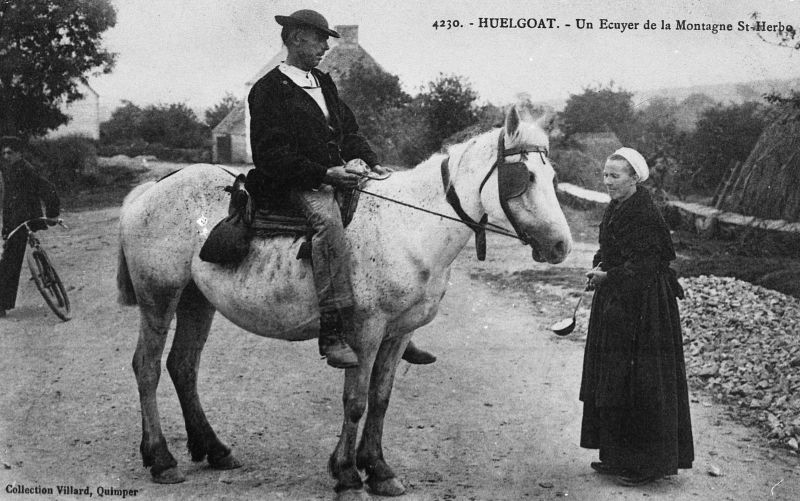
Huelgoat. Breton peasants.

Île-de-Bréhat. Breton peasant.

Île-de-Bréhat. Fuel preparation.
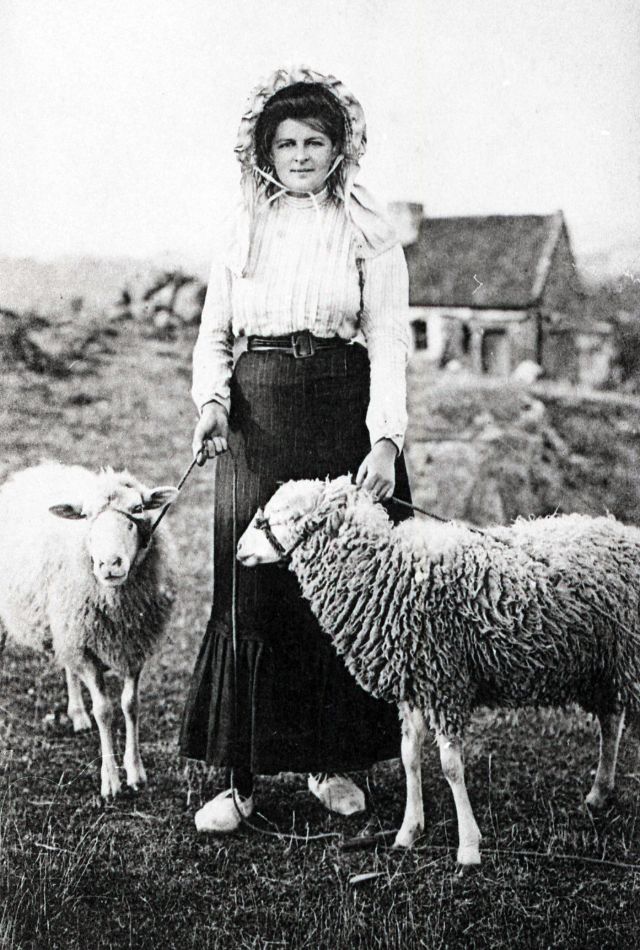
Île-de-Bréhat. Peasant woman.
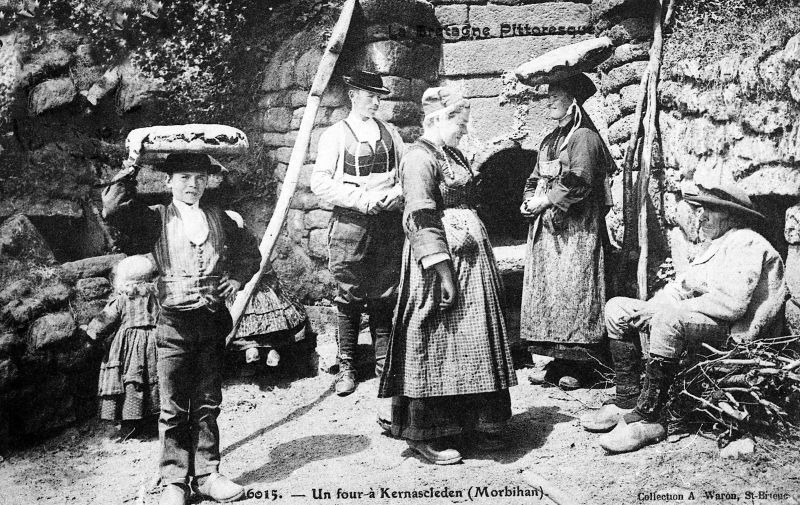
Kernascléden. An oven.
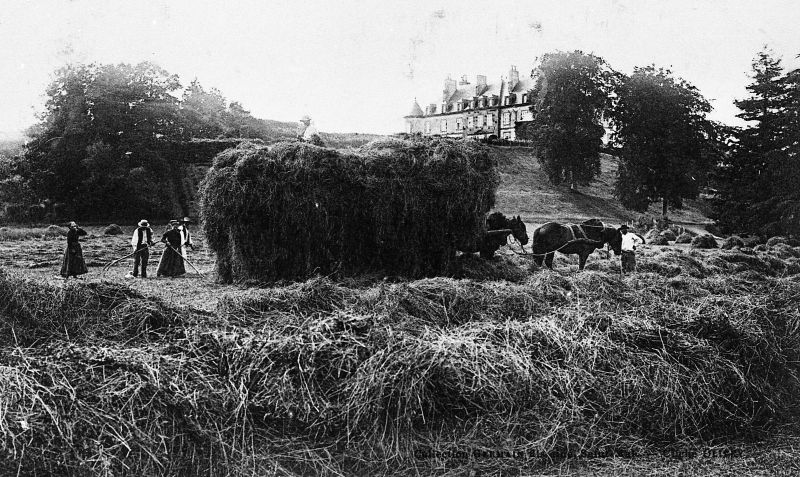
La Gouesnière. Wheat harvest in the French countryside.
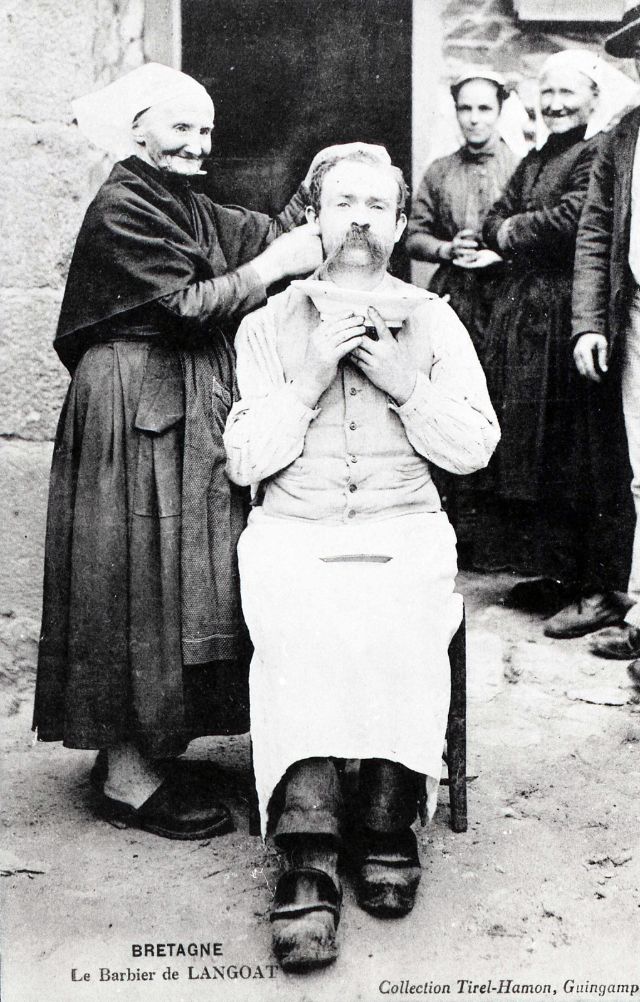
Langoat barber.
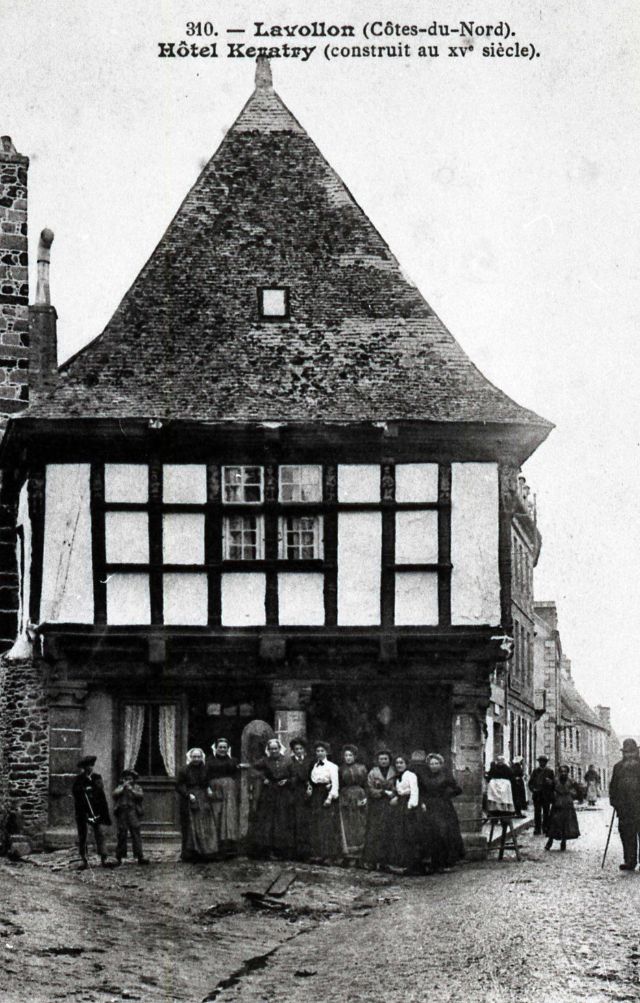
Lanvollon. Keratry Hotel.
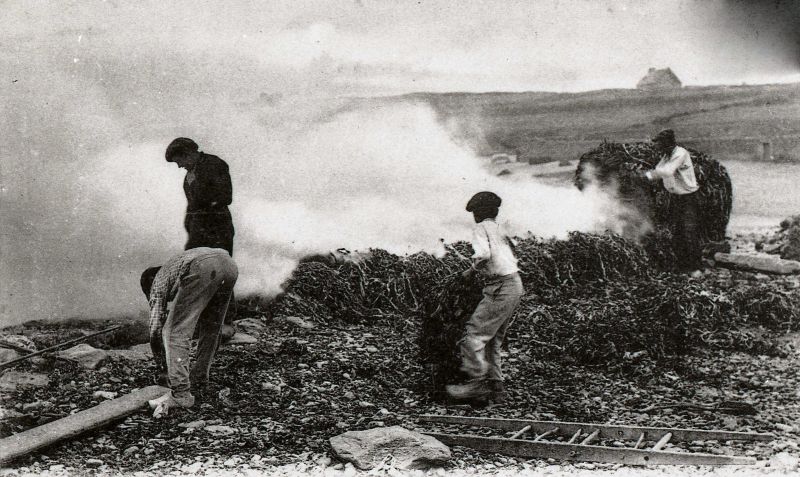
Le Conquet. Seaweed burners.

Le Conquet. Small fish merchant.
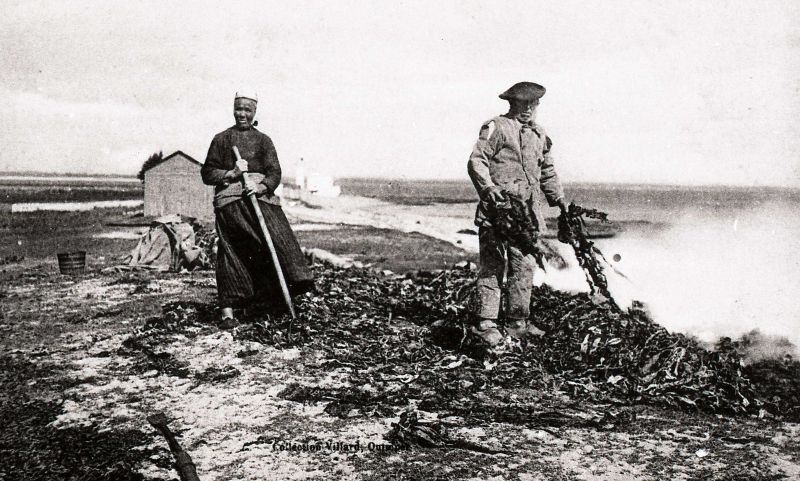
Loctudy. The seaweed burners in Langon.
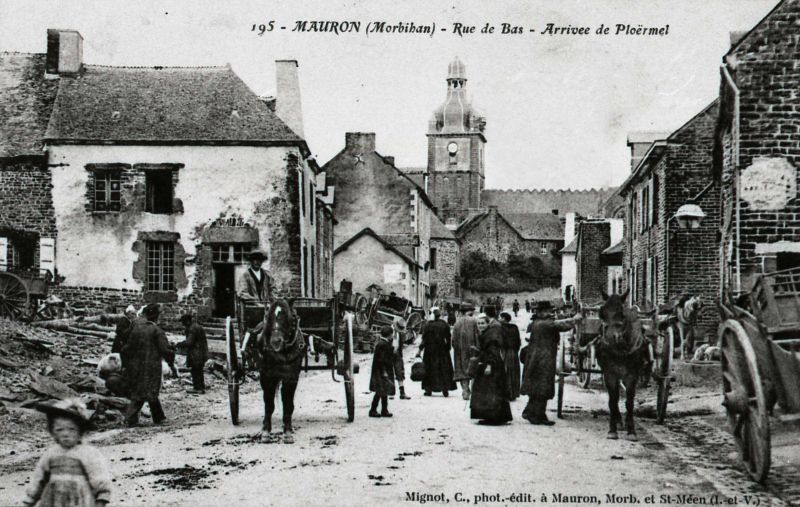
Mauron. Breton peasants in the streets.
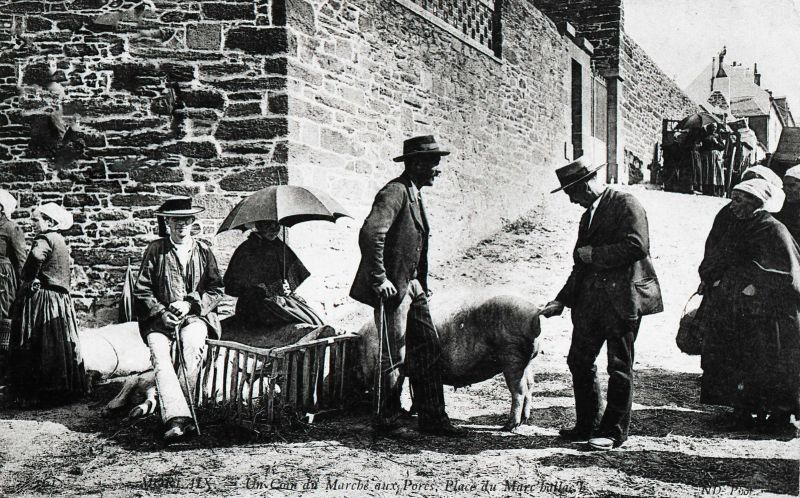
Morlaix. Pig market.
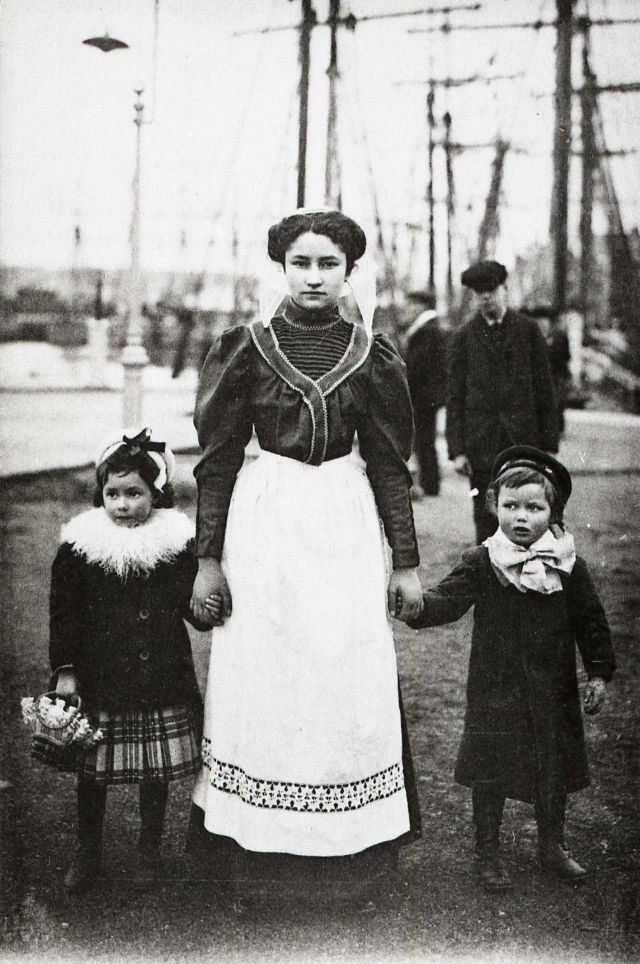
Paimpol jeune bonne.
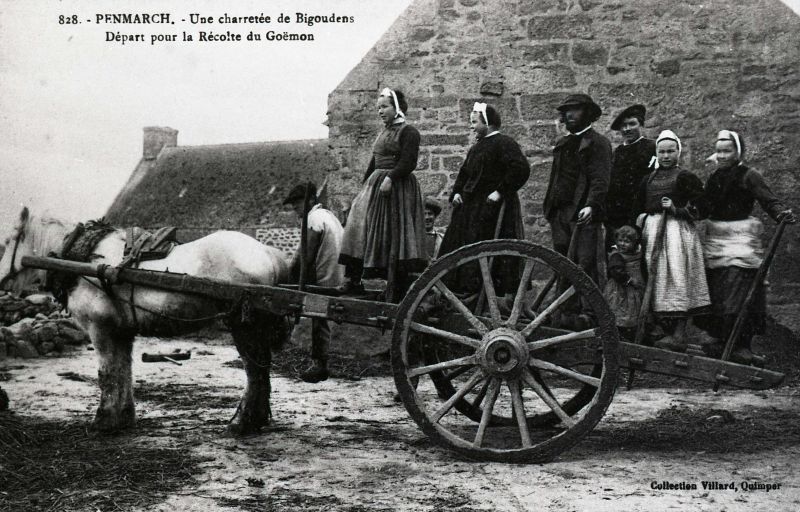
Penmarch. Harvest of the seaweed in Penmarch in the Bigouden country.

Plomodiern smoker.
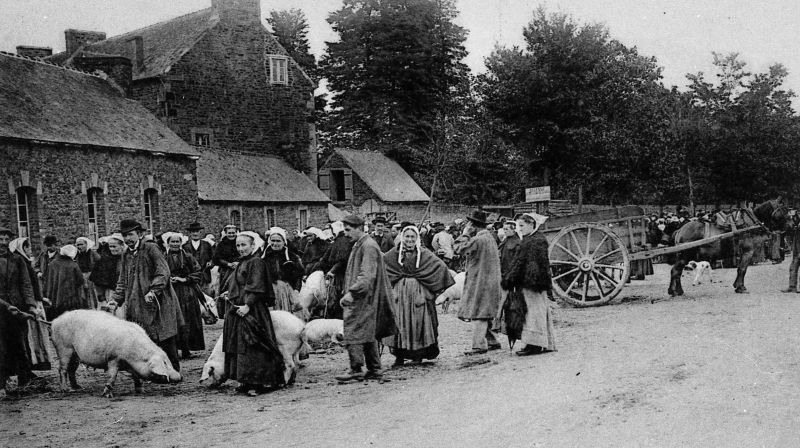
Plouha. Pig fair.
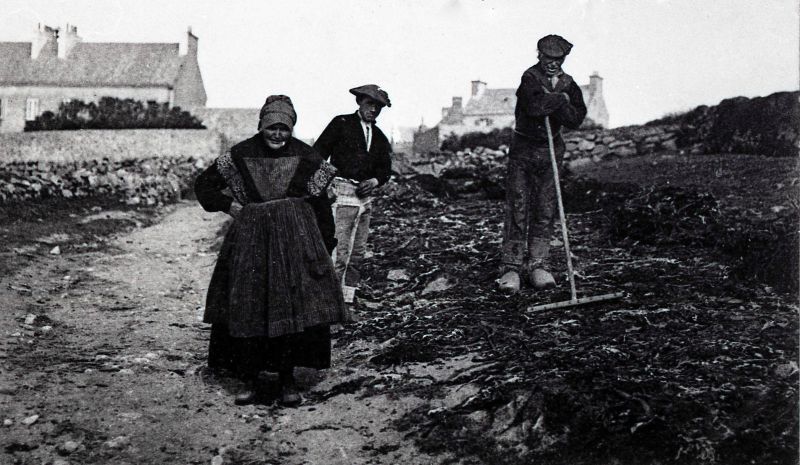
Porspoder. Seaweed harvest.

Quimperlé. Old house market square.
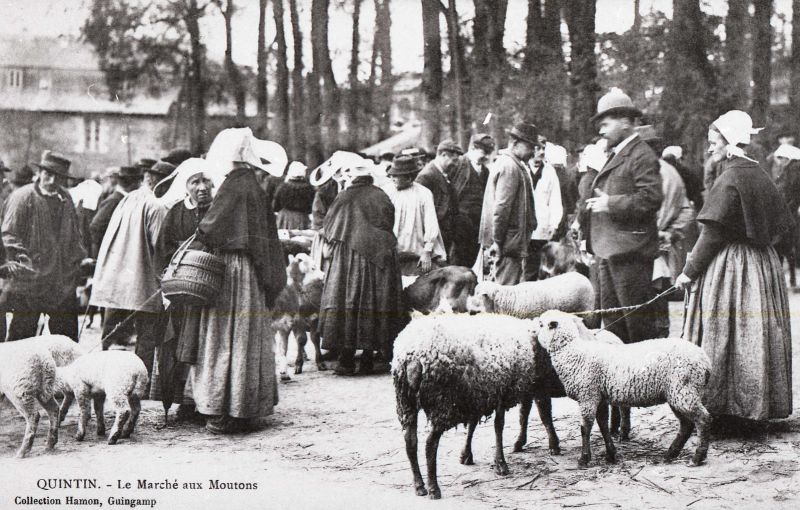
Quintin. Sheep market.
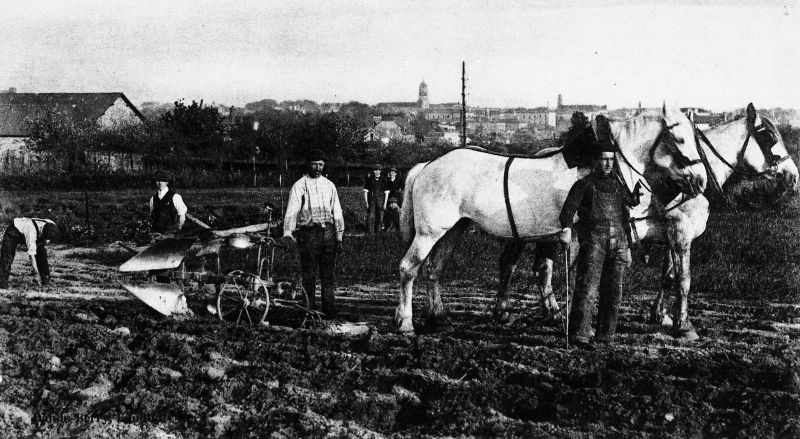
Rennes. Practical school of agriculture

Rosporden costumes.
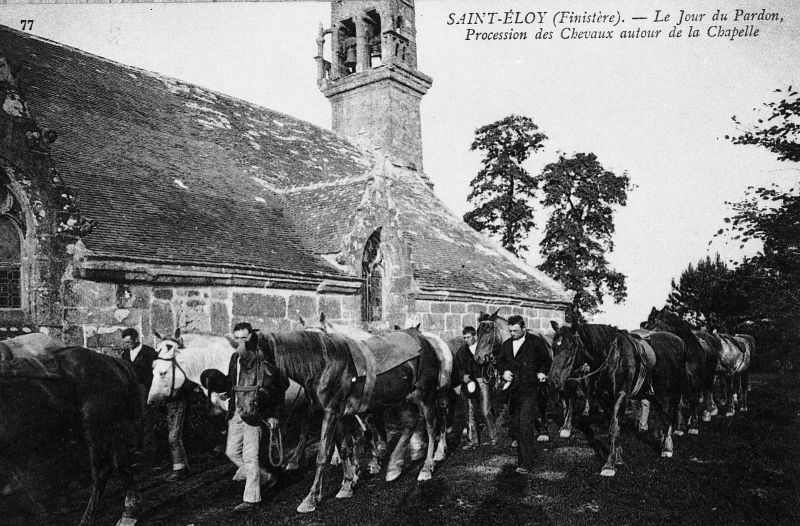
Saint-Eloy. Procession of horses on the day of pardon.
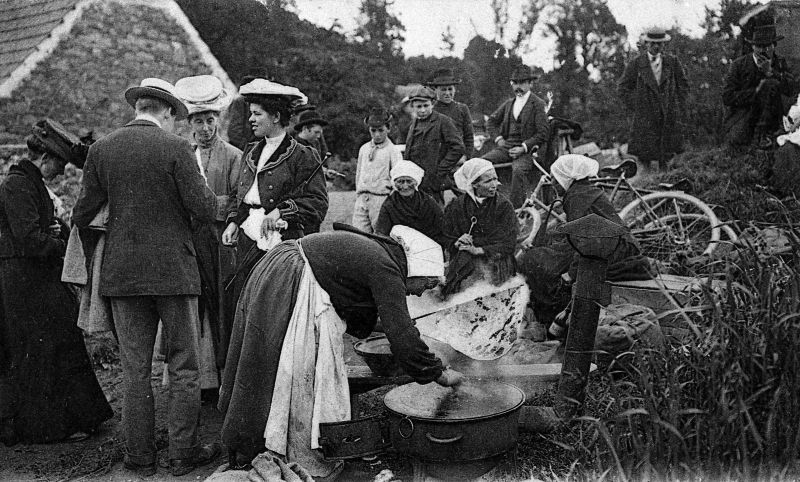
Saint-Jean-du-Doigt. The outdoor crepe maker.
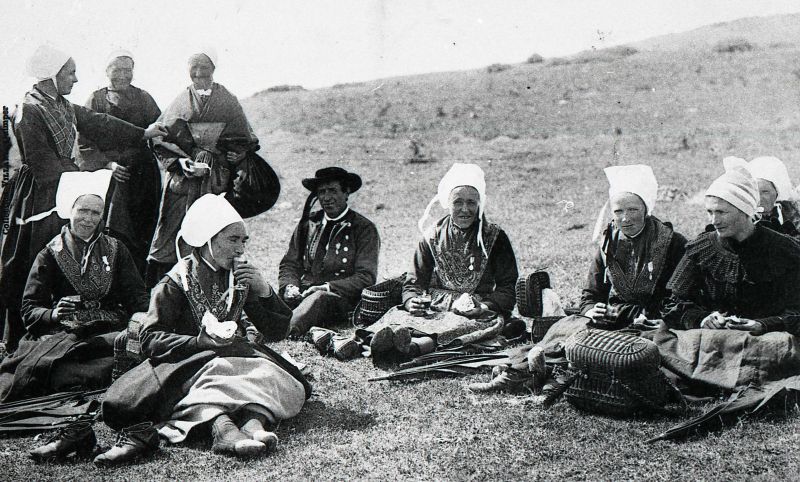
Sainte-Anne-La-palud family meal.
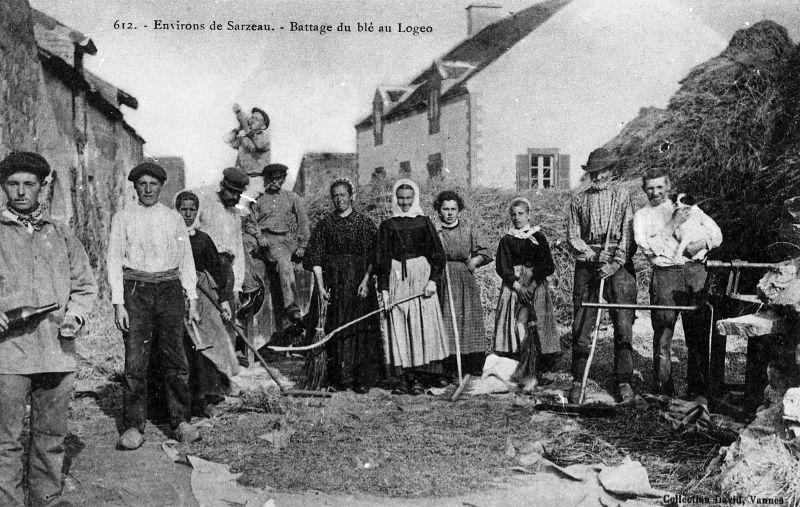
Sarzeau. Wheat threshing at Logéo.
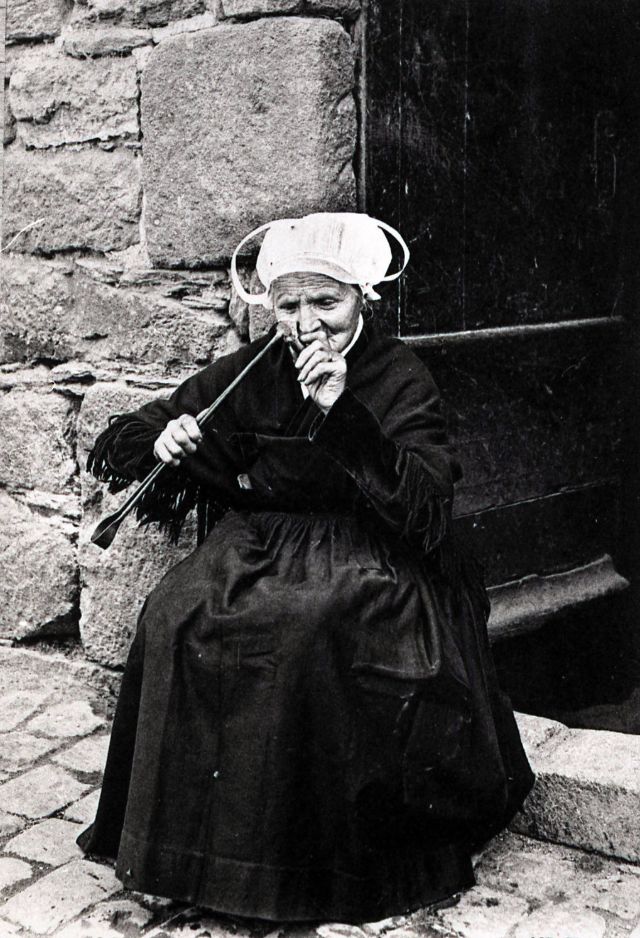
The Martyrdom. Breton woman smoking her pipe.

Tréguier. Old spinner.
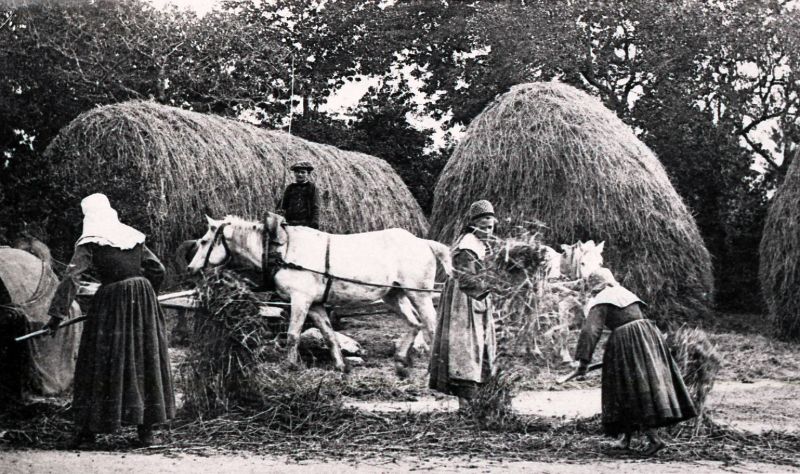
Trégunc. Wheat harvest in the French countryside.
(Photo credit: Claude Lacourarie: flickr.com/photos/claude22 / Wikimedia Commons).
Updated on: April 12, 2023



